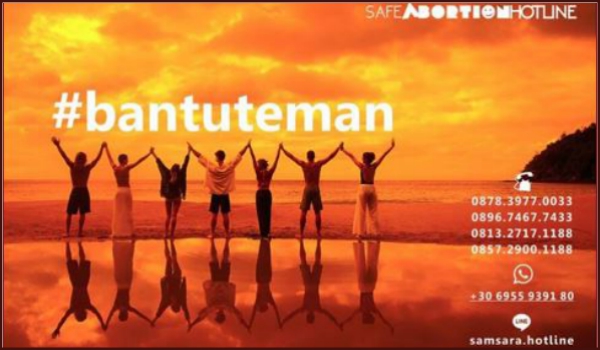
by Caitlin Gerdts, Ruvani T Jayaweera, Sarah E Baum, Inna Hudaya
BMJ Sexual and Reproductive Health 2018;July Epub ahead of print. DOI: 10.1136/bmjsrh-2018-200102
Abstract
Introduction
Unsafe abortion past the first trimester disproportionately accounts for the majority of global abortion-related morbidity and mortality; research that documents the safety, feasibility and acceptability of existing models for providing information and support to women who self-manage outside of formal clinic settings is needed.
Methods
This study is a retrospective analysis of anonymised electronic client records from callers to a safe abortion hotline in Indonesia. Between July 2012 and October 2016, a total of 96 women contacted the hotline for information on medication abortion beyond 12 weeks’ gestation and are included in this study. Descriptive statistics were calculated regarding pregnancy termination status, client experience with warning signs of potential complications, and medical care seeking and treatment.
Results
Ninety-six women with pregnancies beyond the first trimester called the hotline for information on medical abortion; 91 women received counselling support from the hotline. Eighty-three women (91.2%) successfully terminated their pregnancies using medication and did not seek medical care. Five women exhibited warning signs of potential complications and sought medical care; one woman sought care after a failed abortion. Two women were lost to follow-up and the outcomes of their pregnancies are unknown.
Conclusions
Evidence from our analysis suggests that a model of remote provision of support for abortions later in pregnancy by non-medically trained, skilled abortion counsellors could be a safe alternative for women in need of abortions beyond 12 weeks’ gestation in a legally restrictive context. Further examination and documentation of the model is warranted.



